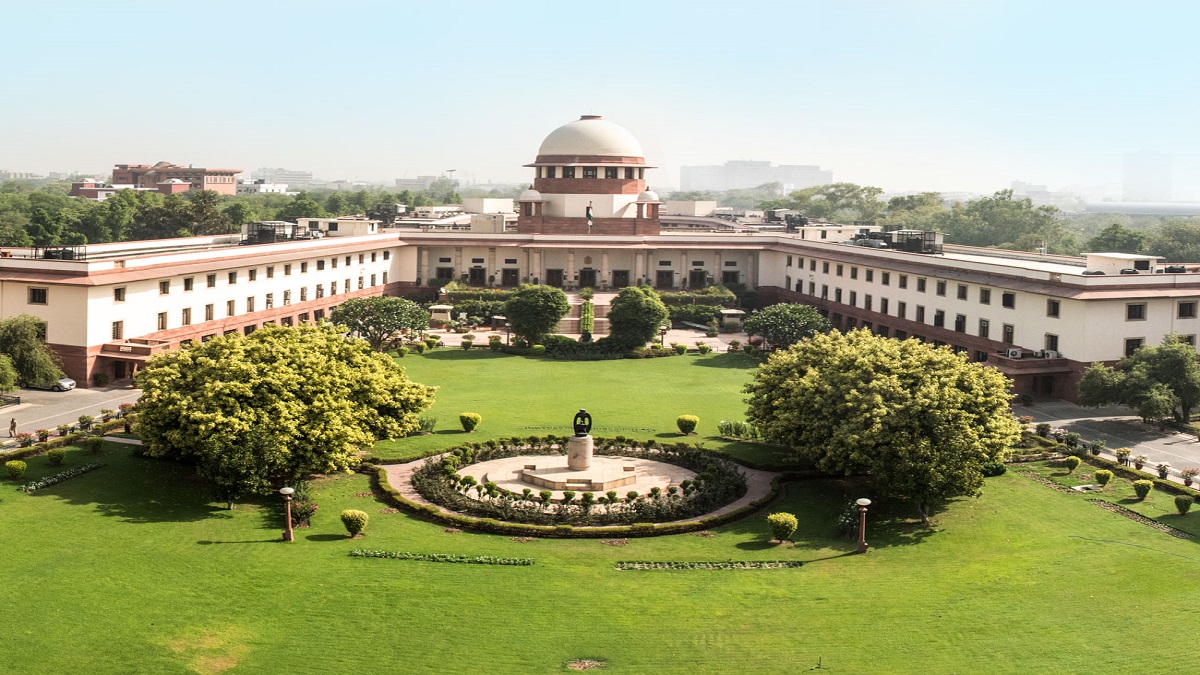Case Title: SHIVENDRA PRATAP SINGH THAKUR @ BANTI Vs. STATE OF CHHATTISGARH AND ORS
Case No.: CRIMINAL APPEAL NO(S). ______OF 2024 (Arising out of SLP (Criminal) No(s). 1400 of 2024)
Order on: May 15, 2024
Quorum: J. B.R. GAVAI, J. SATISH CHANDRA SHARMA), J. SANDEEP MEHTA
Facts:
In this case, the appellant, Shivendra Pratap Singh Thakur @ Banti, appealed against an order which was passed by the Chhattisgarh High Court that dismissed his petition seeking the quashing of FIR No. 590 of 2019. The FIR was filed by Barkat Ali, herein, the complainant, against the appellant and others, alleging offenses under various sections of the Indian Penal Code (IPC), including trespassing, mischief causing damage, and criminal intimidation. In the said FIR by Barkat Ali claimed to have bought land and built a boundary wall on it where Shivendra and another person, Saurabh Pratap Singh Thakur, destroyed his wall and a nearby house under construction, belonging to Sushma Kashyap. It was also stated that they allegedly stole construction materials.
Shivendra contended that Barkat Ali’s claims were false and fabricated. He said Sushma Kashyap didn’t report any damage to her property, and when the police investigated, they found no damage to Barkat Ali’s wall as claimed. Shivendra also argued that the charges against him were not supported by the evidence in the charge sheet. Hence, the High Court rejected Shivendra’s petition, so he appealed to the Supreme Court, claiming that the case against him should be dismissed because the allegations were untrue and not supported by evidence.
Contentions of the Appellant:
The appellant in this case contended that the entire case outlined in the FIR was false and fabricated. They argued that Sushma Kashyap, the owner of the allegedly damaged property, did not report any criminal acts to the police. Additionally, during the investigation, no damage to Barkat Ali’s boundary wall, as claimed in the FIR, was found by the Investigating Officer. The appellant further asserted that the FIR and the subsequent charge sheet should be quashed because the offenses alleged were not substantiated by the evidence presented in the charge sheet.
Contentions of the Respondent:
The respondents in this case, representing the State of Chhattisgarh and others, argued against the appellant’s contentions. They likely contended that the allegations in the FIR were based on factual evidence and warranted further investigation and legal proceedings. The respondent might have asserted that the complainant’s claims were credible and supported by witness testimony. Additionally, they could have argued that the appellant’s attempt to quash the FIR and charge sheet was an attempt to evade accountability for their alleged actions.
Legal Provisions:
Section 447 IPC: Punishment for criminal trespass.
Section 427 IPC: It outlines the definition of mischief.
Section 506 IPC: It deals with criminal intimidation.
Issues framed by the Court:
- Whether the allegations made in the FIR against the appellant and others are reliable and supported by evidence?
- Whether the FIR and the subsequent charge sheet filed against the appellant are legally valid and warrant further legal proceedings.
- Whether the appellant’s contentions regarding the inaccuracy of the FIR and lack of evidence to support the charges are justified.
- Whether the High Court’s decision to dismiss the appellant’s petition seeking to quash the FIR and charge sheet was legally sound.
- Whether there are any legal grounds for the Supreme Court to intervene and overturn the High Court’s decision.
Court’s Analysis and Judgement:
Upon its analysis, the Hon’ble Court judiciously examined the evidence presented by both parties, focusing on whether the allegations in the FIR were backed by solid facts. They paid close attention to the appellant’s argument that the FIR was made up and lacked evidence to support the charges against them. Additionally, the court reviewed the High Court’s decision to reject the appellant’s petition, ensuring it was legally justified. After considering all the facts and arguments, the court would have reached a judgment. Ultimately, the court’s intended to set a resolution to the case, either affirming the dismissal of the appellant’s petition or allowing it and quashing the FIR.
“PRIME LEGAL is a full-service law firm that has won a National Award and has more than 20 years of experience in an array of sectors and practice areas. Prime legal fall into a category of best law firm, best lawyer, best family lawyer, best divorce lawyer, best divorce law firm, best criminal lawyer, best criminal law firm, best consumer lawyer, best civil lawyer.”
Judgement Reviewed By- Shramana Sengupta


